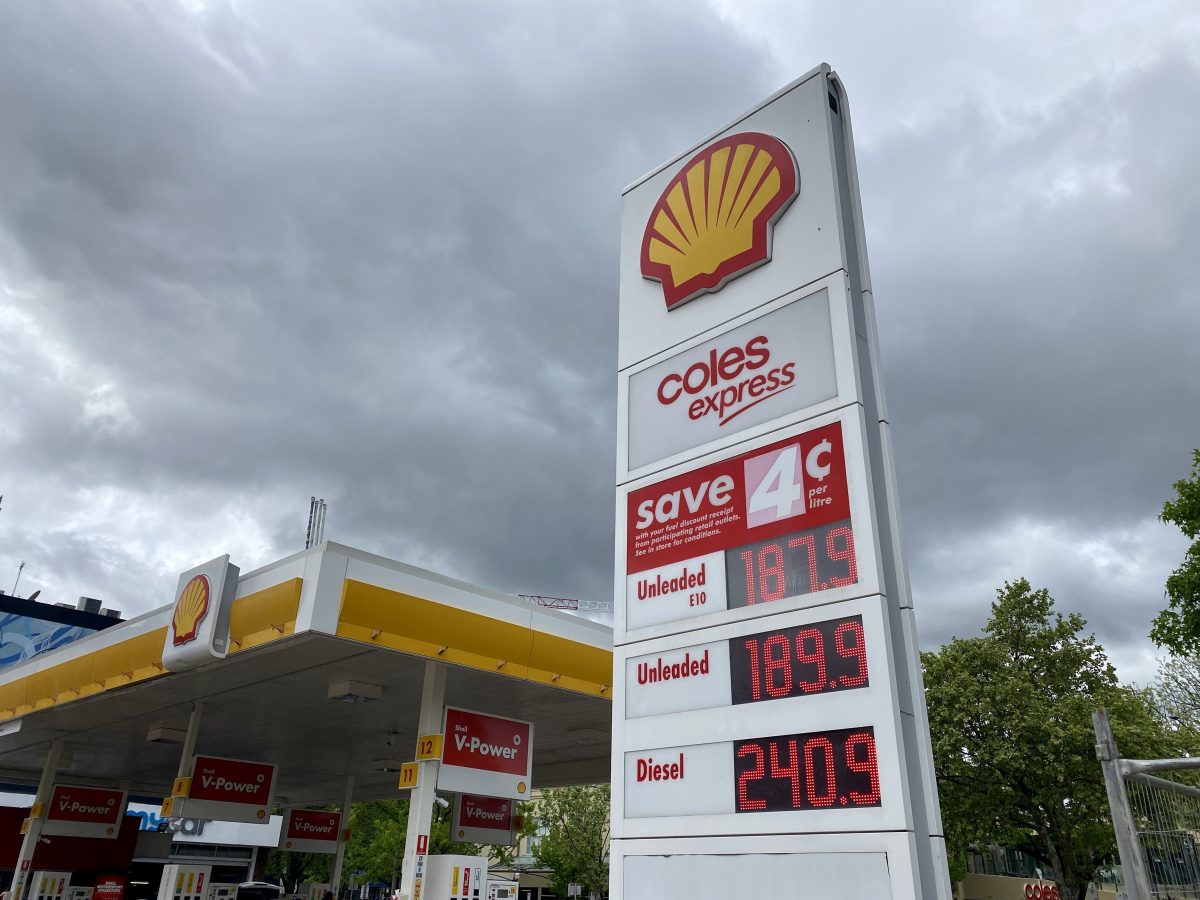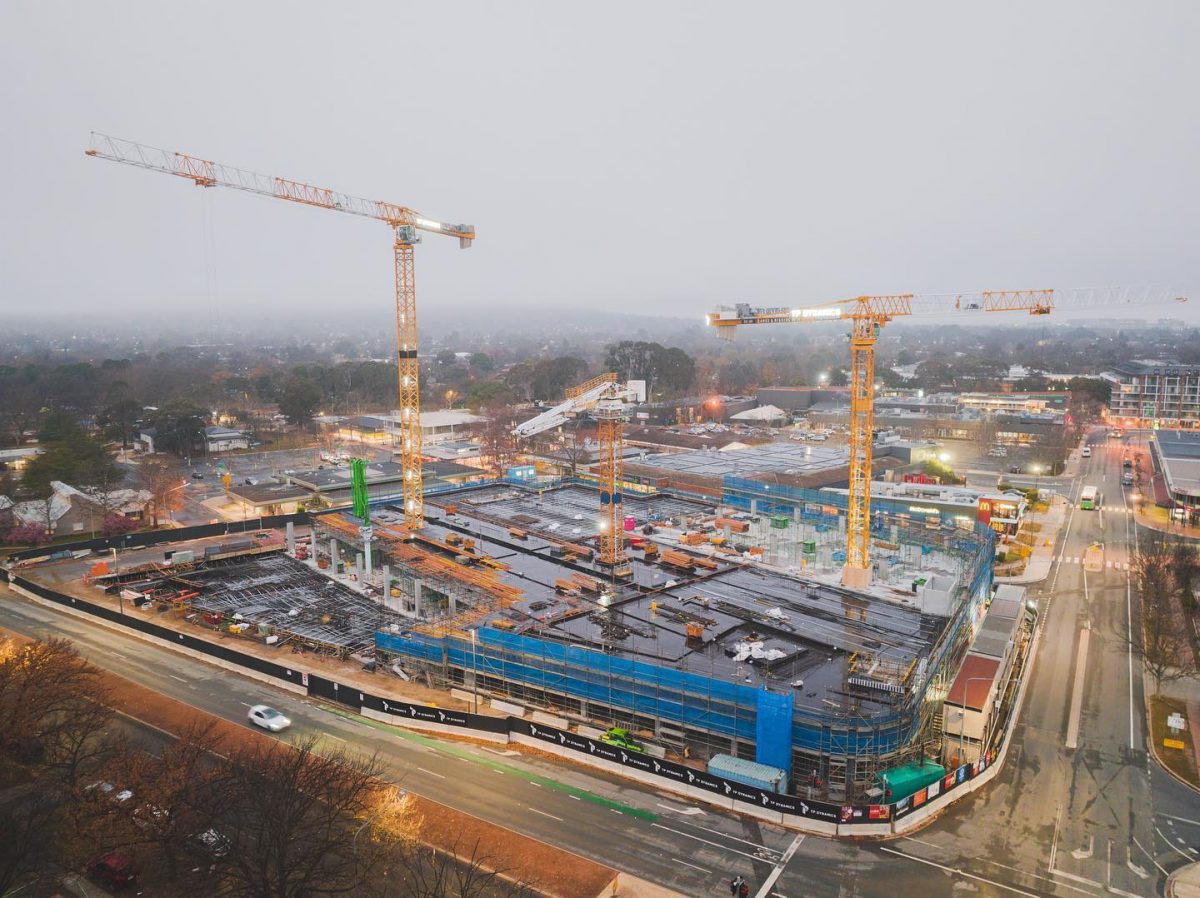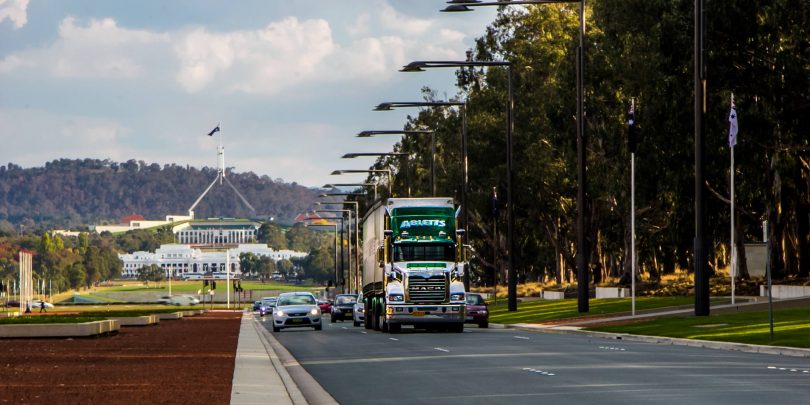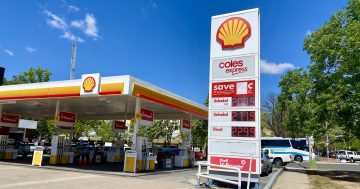
The Manuka Coles Express service station today: Ouch. Photo: James Coleman.
Europe’s energy crisis might seem like a distant problem, but it’s the reason you’re paying so much for diesel at the moment, according to Australia’s peak fuel body.
Today (27 October), Canberra motorists are paying between $2.31 and $2.43 per litre for diesel. For comparison, the average price of regular unleaded petrol is $1.88 per litre.
Australasian Convenience and Petroleum Marketers Association (ACAPMA) CEO Mark McKenzie says he can’t remember a time it was so high.
“It’s extraordinary,” he says.
“In theory, diesel should cost less than petrol because it normally carries a refining cost of about five cents per litre less than that of petrol. But in recent times, it has been three times higher, and in the middle of June, 11 times higher than that, simply because of the competition for the finished product.”
He “absolutely” lays the blame on what’s going on in Europe.
“The massive impost on the cost of diesel at the moment is because of the renewable energy crisis in Europe, and the fact so much diesel is being snatched up for use in power generation.”
Europe has been in the grips of an energy crisis since Russia invaded Ukraine earlier this year. The continent’s renewable energy production was caught unprepared when Russia retaliated to EU sanctions by cutting natural gas supply in September.
In Canberra, the extra cost is rising through the supply chain to eye-watering levels.

TP Dynamics at Dickson Village. Photo: TP Dynamics, Facebook.
Local property developer TP Dynamics is preparing a site at Dickson Village for a new Coles supermarket and Liquorland with a range of large-scale excavators, skid-steer loaders and other heavy machinery and trucks – all powered by diesel.
Construction manager Jordan Wind says they have noticed the rising costs across the board, from earthworks to material supply.
“Nine months ago, we would pay between $155 and $165 per hour for truck hire to cart material around,” he says.
“That has now increased to $170 and $190 per hour. That may not seem like much, but when we have up to 15 trucks onsite per day at eight hours each for three to four months, it really starts to add up.”
Then there is the cost of supplies, which Jordan says has risen by up to 20 per cent.
“This time last year our average monthly spending for materials was around $12,000 to $15,000. Now we are paying around $14,500 to $17,000 per month.”
Ablett’s Transport is a family-run trucking company with offices in Sydney, Melbourne and Canberra and a mixed fleet of older and newer vehicles. Spokesperson Leigh Ablett says they keep a bulk supply in their Canberra yard, but the bill for this has “gone through the roof”.
“We used to pay about $40,000 for a B-double load of diesel, or about 45,000 litres. Now we’re paying more than $100,000. And that’s in the space of 12 to 18 months. We have to pass this extra cost on, otherwise we’ll go broke.”
That’s not the only problem.
In January this year, Ablett’s was almost forced to pull their trucks up on the side of the road due to a shortage of AdBlue.

An Ablett’s Transport truck in Canberra. Photo: Abletts Transport.
AdBlue is a mixture of 32 per cent urea and 68 per cent demineralised water, stored in a separate tank from the diesel and injected into the exhaust systems of modern cars, trucks, farm equipment and construction machinery to rid the gasses of the most noxious elements.
China stopped exporting urea in 2021, ostensibly to ensure their farmers had enough supply and caught Australia off-guard. Queensland-based industrial chemical company Incitec Pivot was forced to ramp up production but flagged a closure in December 2022 due to a gas supply dispute.
Leigh says there are no issues with the supply of AdBlue at the moment but isn’t hopeful for the future, noting that much of Australia’s urea supply still comes from overseas, particularly the Middle East.
What does that mean?
“We’ll be vulnerable again,” he says.













